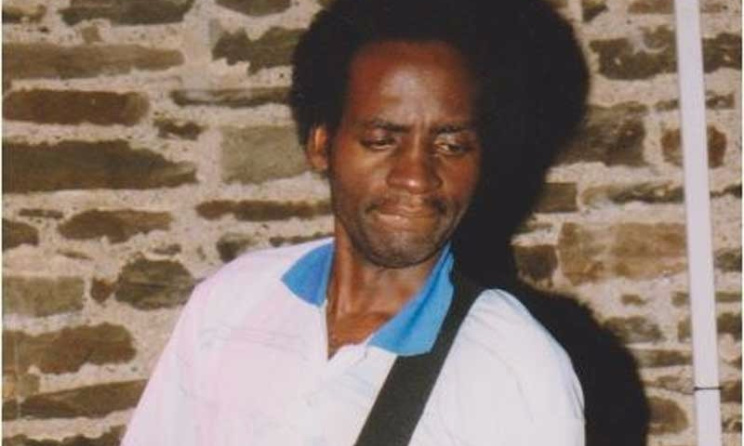Sungura: Story of John Chibadura and Zim music
Writer: Andreas Hoehn
Director: Vladimir Petrovski-Karter
Running time: 104 minutes
 The late John Chibadura.
The late John Chibadura.
The new, extraordinary DVD titled Sungura: Story of John Chibadura and Zimbabwean Music, brought tears to my eyes.
As a sungura fan, I applaud the creators of this DVD for a job well done. It is quite informative and, indeed, a must-have for every Zimbabwean. It is an important resource that documents the story of sungura music, a genre facing serious threat from emerging types of music, for posterity.
The documentary begins with John Chibadura’s sons, one singing their father’s song 'Zuva Rekufa Kwangu', and the other playing a guitar. It is a beautiful, touching opening at Chibadura’s homestead. At the end of the DVD, we are taken to the same set, with the same young man who was playing the acoustic guitar at the beginning now singing his father’s 'Madiro'.
After 'Zuva Rekufa Kwangu', the scene then changes and the viewer is taken on a ride around present-day Zimbabwe, while listening to the late Edinah Chataika’s 'Nguva Yakanakisa', itself a deeply moving track.
The documentary presents, in a long sweep, the entire story of sungura music in Zimbabwe, from the past to the present, with sneak previews into the future, through various artists who have dominated the music genre.
Watching the story of Mhosva Marasha – popularly known as Biggie Tembo in music circles – is bound to get you emotional, especially when you hear his son singing the late great musician’s songs and talk fondly about his late father. One of the outstanding features of the documentary is how it demonstrates the efforts by the offspring of these late great musicians to carry their legacies.
The DVD also relates the story of the late Tymon Mabaleka, a man who wore many hats: music producer, manager and Rhodesia national soccer team player. Listening to his stories, interweaving some interesting sungura moments, simply makes one nostalgic. Mabaleka takes us through the Zimbabwe Music Corporation vinyl pressing plant and how it operates. Will future generations know what a vinyl record is?
Mabaleka also shares colourful details about how Chibadura began his music journey and other enthralling stories that, had this documentary not been produced, would have likely been buried with their bearers.
Affectionately known as Mr Chitungwiza, John Chibadura was among Zimbabwe’s finest ever musicians. He died on 4 August 1999 at the age of 42.
Watching the documentary was a heart-warming experience: visiting the Chibadura home in Chiweshe and meeting the rest of the family including Chibadura’s wife, Mrs Chitungwiza (as Mabaleka fondly called her). There were sombre moments too, as I stood by Chibadura’s grave and many happier ones as I witnessed some live recordings.
The old video clips from Chibadura, Tembo, Green Arrows, Black Salutaries, Mashura and Okavango Boys, Marshall Munhumumwe and The Four Brothers took me down memory lane. There was also time to get on the dance floor as I visited nightclubs in the 'Sunshine City' of Harare for live performances by Alick Macheso and Tryson Chimbetu.
The interviews with various people throughout the documentary were educative and absorbing. Seeing the writer and director of the documentary, Andreas Hoehn, dancing to 'Zuva Rekufa Kwangu', put a smile on my teary face.
Buy the DVD here.





















Commentaires
s'identifier or register to post comments